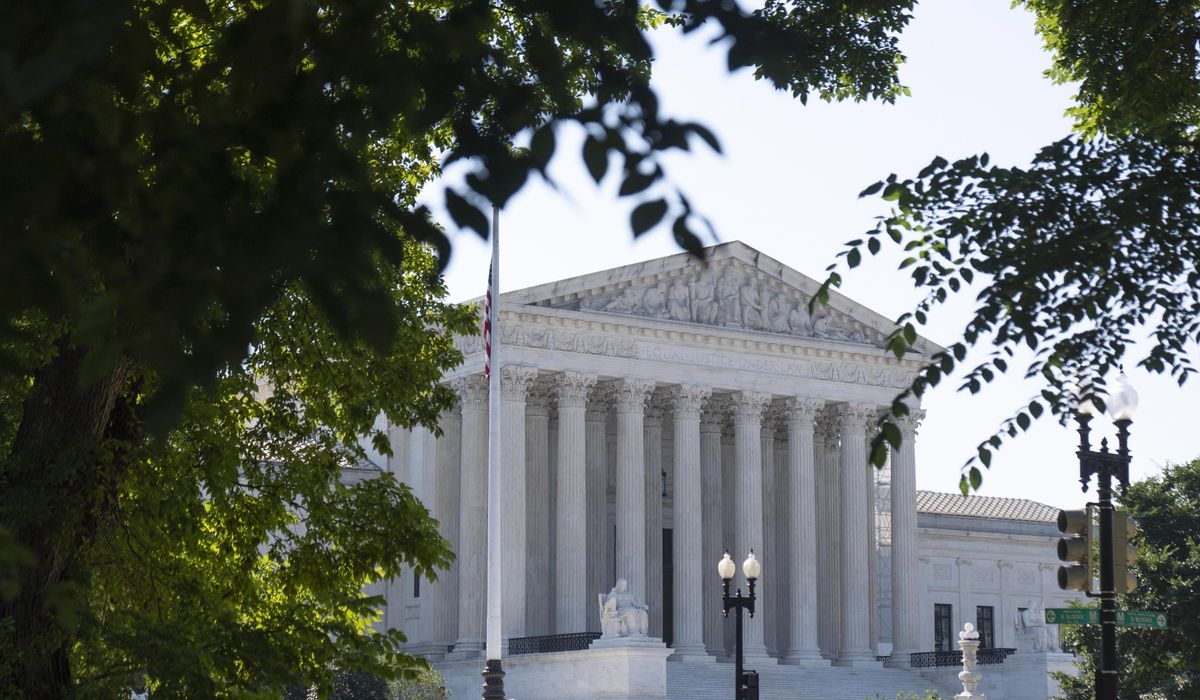


The Supreme Court shot down a challenge Friday by illegal immigrants who said they weren’t properly served their court summonses in a ruling that heads off chaos in the deportation system.
The case hinged on what information had to be included in the initial summons or Notice to Appear, given to the migrants at the time they were processed and released.
Justice Samuel A. Alito Jr., writing for the majority in the 5-4 ruling, said the law requires only that all of the information be provided in time, not that it all has to be on the initial summons.
The cases before the court involved illegals who failed to appear for their deportation hearings and were ordered deported in absentia. Years later, when the government tried to deport them, they said their proceedings were marred by an inadequate initial summons.
But the government said it provided the information in a follow-up summons.
Justice Alito said that complied with the letter of the law.
“Today’s decision does not mean that the government is free of its obligation to provide an NTA,” he wrote. “But [the law] does not allow aliens to seek rescission of removal orders in perpetuity based on arguments they could have raised in a hearing that they chose to skip.”
He said migrants can still argue their summons was deficient at the time of their hearing, but they can’t use it as a way to expunge a deportation order after it was issued in absentia.
In absentia, decisions are common in the immigration courts as many illegal immigrants don’t show up, figuring they can remain in the shadows for years.
If the court had ruled in their favor, it would have created a new opportunity to reopen those cases and could have swamped overloaded immigration judges with new cases.
Justice Ketanji Brown Jackson, writing in dissent, said the decision lets the government off the hook for critical procedural checks in the deportation process.
“Instead of requiring the government to shoulder that burden, the majority effectively shifts it onto the noncitizens — individuals perhaps unfamiliar with this country and its laws — tasking them with the responsibility of addressing the government’s mistakes. That is not the statute Congress wrote,” she wrote.
The justices were hearing three cases. One came out of the 5th U.S. Circuit Court of Appeals that ruled for the government and two came out of the 9th Circuit, which ruled in favor of the migrants.
• Stephen Dinan can be reached at sdinan@washingtontimes.com.
